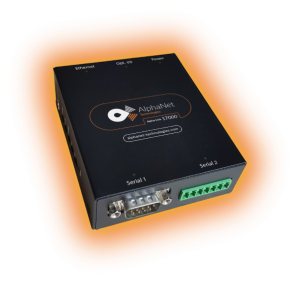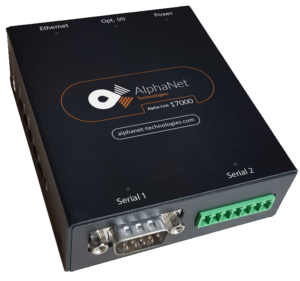SCADA (Supervisory Control and Data Acquisition) packages are computer programs that monitor and control industrial processes, such as manufacturing, production, and distribution. These packages are designed to communicate with a wide range of industrial devices and sensors, including Modbus gateways, which are used to connect Modbus devices to other industrial networks.
Modbus is a popular protocol used in industrial automation, and Modbus gateways are devices that allow Modbus devices to communicate with other industrial networks. There are many SCADA packages available on the market that can communicate with Modbus gateways, but some of the most popular ones are:
Ignition by Inductive Automation – Ignition is a powerful and flexible SCADA software platform that can communicate with Modbus gateways, as well as a wide range of other industrial protocols. It is known for its ease of use, scalability, and low cost of ownership.
WinCC by Siemens – WinCC is a comprehensive SCADA software platform that can communicate with Modbus gateways and other industrial protocols. It is designed for large-scale industrial applications and is known for its high reliability and scalability.
Wonderware by Schneider Electric – Wonderware is a popular SCADA software platform that can communicate with Modbus gateways and a wide range of other industrial protocols. It is known for its ease of use and flexibility, and is widely used in a variety of industries, including manufacturing, oil and gas, and water treatment.
FactoryTalk by Rockwell Automation – FactoryTalk is a comprehensive SCADA software platform that can communicate with Modbus gateways and other industrial protocols. It is designed for large-scale industrial applications and is known for its high reliability and scalability.
Vijeo Citect by Schneider Electric – Vijeo Citect is a powerful and flexible SCADA software platform that can communicate with Modbus gateways and other industrial protocols. It is designed for large-scale industrial applications and is known for its ease of use, scalability, and low cost of ownership.
Zenon by COPA-DATA – Zenon is a comprehensive SCADA software platform that can communicate with Modbus gateways and other industrial protocols. It is known for its flexibility, scalability, and reliability, and is widely used in a variety of industries, including manufacturing, food and beverage, and pharmaceuticals.
iFIX by GE Digital – iFIX is a powerful and flexible SCADA software platform that can communicate with Modbus gateways and a wide range of other industrial protocols. It is known for its ease of use, scalability, and reliability, and is widely used in a variety of industries, including oil and gas, water treatment, and food and beverage.
InTouch by Wonderware – InTouch is a popular SCADA software platform that can communicate with Modbus gateways and a wide range of other industrial protocols. It is known for its ease of use and flexibility, and is widely used in a variety of industries, including manufacturing, food and beverage, and pharmaceuticals.
Citect SCADA by Schneider Electric – Citect SCADA is a comprehensive SCADA software platform that can communicate with Modbus gateways and a wide range of other industrial protocols. It is designed for large-scale industrial applications and is known for its high reliability and scalability.
SCADA Pro by ICONICS – SCADA Pro is a powerful and flexible SCADA software platform that can communicate with Modbus gateways and a wide range of other industrial protocols. It is known for its ease of use, scalability, and reliability, and is widely used in a variety of industries, including manufacturing, food and beverage, and pharmaceuticals.
Many advantages of SCADA systems include:
Real-time monitoring: SCADA systems provide real-time monitoring of industrial processes. The system collects data from sensors and other devices, and presents the data in a graphical user interface (GUI). The GUI displays real-time data, such as temperature, pressure, and flow rate. This allows operators to monitor the process and detect any anomalies or issues.
Improved productivity: SCADA systems help to improve productivity by providing accurate and timely data. With real-time data, operators can identify and address issues before they become major problems. This reduces downtime and improves the efficiency of the process.
Remote monitoring and control: SCADA systems allow for remote monitoring and control of industrial processes. This is particularly useful in industries where the process is located in a remote or hazardous location. Operators can monitor and control the process from a central location, which improves safety and reduces travel costs.
Data analysis: SCADA systems collect large amounts of data from sensors and other devices. This data can be analyzed to identify trends and patterns. This helps operators to optimize the process and improve performance.
Increased safety: SCADA systems can improve safety by monitoring and controlling hazardous processes. Operators can receive alarms and notifications if the process exceeds safe operating limits. This helps to prevent accidents and reduce the risk of injury.
Cost savings: SCADA systems can help to reduce costs by improving productivity and efficiency. By identifying and addressing issues early, downtime is reduced, and the process runs more efficiently. This reduces maintenance costs and improves the overall profitability of the process.
Easy integration: SCADA systems can be easily integrated with other systems, such as ERP (Enterprise Resource Planning) and MES (Manufacturing Execution Systems). This allows for a seamless flow of data between systems, which improves efficiency and accuracy.
Scalability: SCADA systems can be scaled to meet the needs of the process. As the process grows, additional sensors and devices can be added to the system. This allows for the system to grow with the process, without requiring a complete overhaul of the system.
Improved decision-making: SCADA systems provide operators with real-time data, which allows for quick and informed decision-making. This helps to improve the efficiency of the process and reduce downtime.
Regulatory compliance: SCADA systems can help to ensure regulatory compliance by monitoring and controlling processes to meet regulatory requirements. This helps to avoid fines and other penalties associated with non-compliance.
SCADA systems offer numerous advantages for industrial processes offered by many of the above SCADA software companies. They provide real-time monitoring, remote monitoring and control, data analysis, increased safety, cost savings, easy integration, scalability, improved decision-making, and regulatory compliance. These advantages make SCADA systems an essential technology for many industries.


